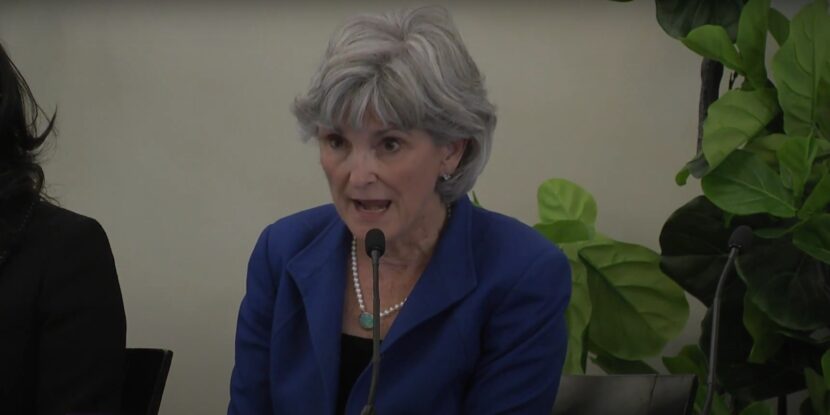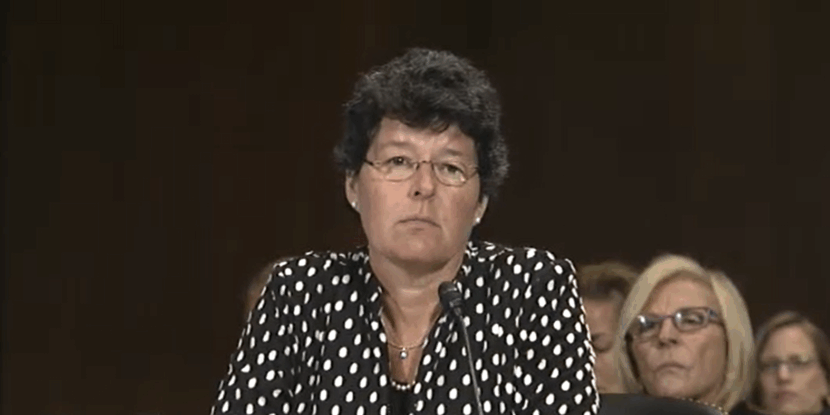
PULSE POINTS:
❓What Happened: A federal judge issued a preliminary injunction halting the Trump administration’s efforts to cut 10,000 jobs and reorganize federal agencies under its Department of Government Efficiency (DOGE) initiative.
👥 Who’s Involved: President Donald Trump, senior U.S. District Court Judge Susan Illston, U.S. Solicitor General John Sauer, federal employee unions, advocacy groups, and several states and local governments.
Your free, daily feed from The National Pulse.
📍 Where & When: The injunction was issued late Thursday evening on May 22, 2025.
💬 Key Quote: “Agencies may not conduct large-scale reorganizations and reductions in force in blatant disregard of Congress’s mandates, and a President may not initiate large-scale executive branch reorganization without partnering with Congress,” wrote Bill Clinton appointee Judge Susan Illston.
⚠️ Impact: The Trump administration has appealed the decision to the 9th Circuit and may seek Supreme Court intervention, as the injunction halts a key element of the administration’s second-term domestic policy.
IN FULL:
A federal judge has temporarily blocked the Trump administration’s efforts to cut 10,000 jobs and restructure federal agencies, issuing a preliminary injunction that halts the initiative known as the Department of Government Efficiency (DOGE), which has been fronted by billionaire entrepreneur Elon Musk. The order, issued late Thursday by senior U.S. District Court Judge Susan Illston of the U.S. District Court for the Northern District of California, prevents further reductions in force and executive branch reorganization while a lawsuit challenging the plan proceeds. The lawsuit was filed by unions representing federal employees, advocacy organizations, and a coalition of states, cities, and counties.
The administration’s February 11 Executive Order, aimed at “critical transformation of the Federal bureaucracy,” directed agency heads to prepare for large-scale workforce reductions. The mass layoffs have been a key feature of President Trump’s second-term domestic agenda.
“Presidents may set policy priorities for the executive branch, and agency heads may implement them. This much is undisputed,” Judge Illston wrote in her decision. However, the Bill Clinton appointee insisted that Congress holds the authority to create, fund, and assign duties to federal agencies. “Agencies may not conduct large-scale reorganizations and reductions in force in blatant disregard of Congress’s mandates, and a President may not initiate large-scale executive branch reorganization without partnering with Congress,” she added.
The Trump administration has already appealed the ruling to the 9th U.S. Circuit Court of Appeals and is expected to request a stay of the injunction. U.S. Solicitor General John Sauer, in a filing to the U.S. Supreme Court, criticized the injunction for barring nearly the entire executive branch from implementing workforce reduction plans. “Neither Congress nor the Executive Branch has ever intended to make federal bureaucrats ‘a class with lifetime employment, whether there was work for them to do or not,’” Sauer argued.

PULSE POINTS:
❓What Happened: A federal judge has issued a temporary restraining order barring the Trump administration from revoking Harvard University’s Student and Exchange Visitor Program (SEVP) certification, which would have barred them from enrolling foreign students.
👥 Who’s Involved: U.S. District Court Judge Allison D. Burroughs, Harvard University, foreign students, Homeland Security Secretary Kristi Noem, and the Trump administration.
Your free, daily feed from The National Pulse.
📍 Where & When: Harvard’s Student and Exchange Visitor Program (SEVP) certification was revoked on Thursday, May 22, 2025. Meanwhile, Harvard’s lawsuit was announced on Friday, May 23, with Judge Burroughs issuing the temporary restraining order shortly thereafter.
💬 Key Quote: “Defendants, their agents, and anyone acting in concert or participation with Defendants are hereby enjoined from: A. Implementing, instituting, maintaining, or giving effect to the revocation of Plaintiff’s SEVP certification; B. Giving any force or effect to the Department of Homeland Security’s May 22, 2025 Revocation Notice,” wrote the federal judge.
⚠️ Impact: The temporary restraining order bars DHS from moving forward with pulling Harvard’s Student and Exchange Visitor Program (SEVP) certification while litigation is ongoing.
IN FULL:
U.S. District Court Judge Allison D. Burroughs, in the United States District Court for the District of Massachusetts, has moved to issue a temporary restraining order against the Trump administration in favor of Harvard University. The order blocks Trump White House officials from revoking Harvard’s ability to import foreign students under the student visa program.
The National Pulse reported Thursday that Department of Homeland Security Secretary Kristi Noem announced her agency would be pulling Harvard’s Student and Exchange Visitor Program (SEVP) certification. This means that Harvard would no longer be allowed to enroll foreign students ahead of the 2025-26 academic year. Additionally, any foreign students currently enrolled would need to transfer to another academic institution.
Burroughs, appointed by former President Barack Obama, ruled that Harvard had demonstrated it would “sustain immediate and irreparable injury before there is an opportunity to hear from all parties” unless a Temporary Restraining Order (TRO) was granted.
“Accordingly, Defendants, their agents, and anyone acting in concert or participation with Defendants are hereby enjoined from: A. Implementing, instituting, maintaining, or giving effect to the revocation of Plaintiff’s SEVP certification; B. Giving any force or effect to the Department of Homeland Security’s May 22, 2025 Revocation Notice,” she stated.
Earlier Friday, Harvard had filed a lawsuit against President Donald J. Trump and his White House. Harvard’s President, Dr. Alan M. Garber, condemned the SEVP revocation, calling it an “unlawful and unwarranted action.”
Garber argued: “It imperils the futures of thousands of students and scholars across Harvard and serves as a warning to countless others at colleges and universities throughout the country who have come to America to pursue their education and fulfill their dreams.”
show less

 1 month ago
2
1 month ago
2








 English (US) ·
English (US) ·